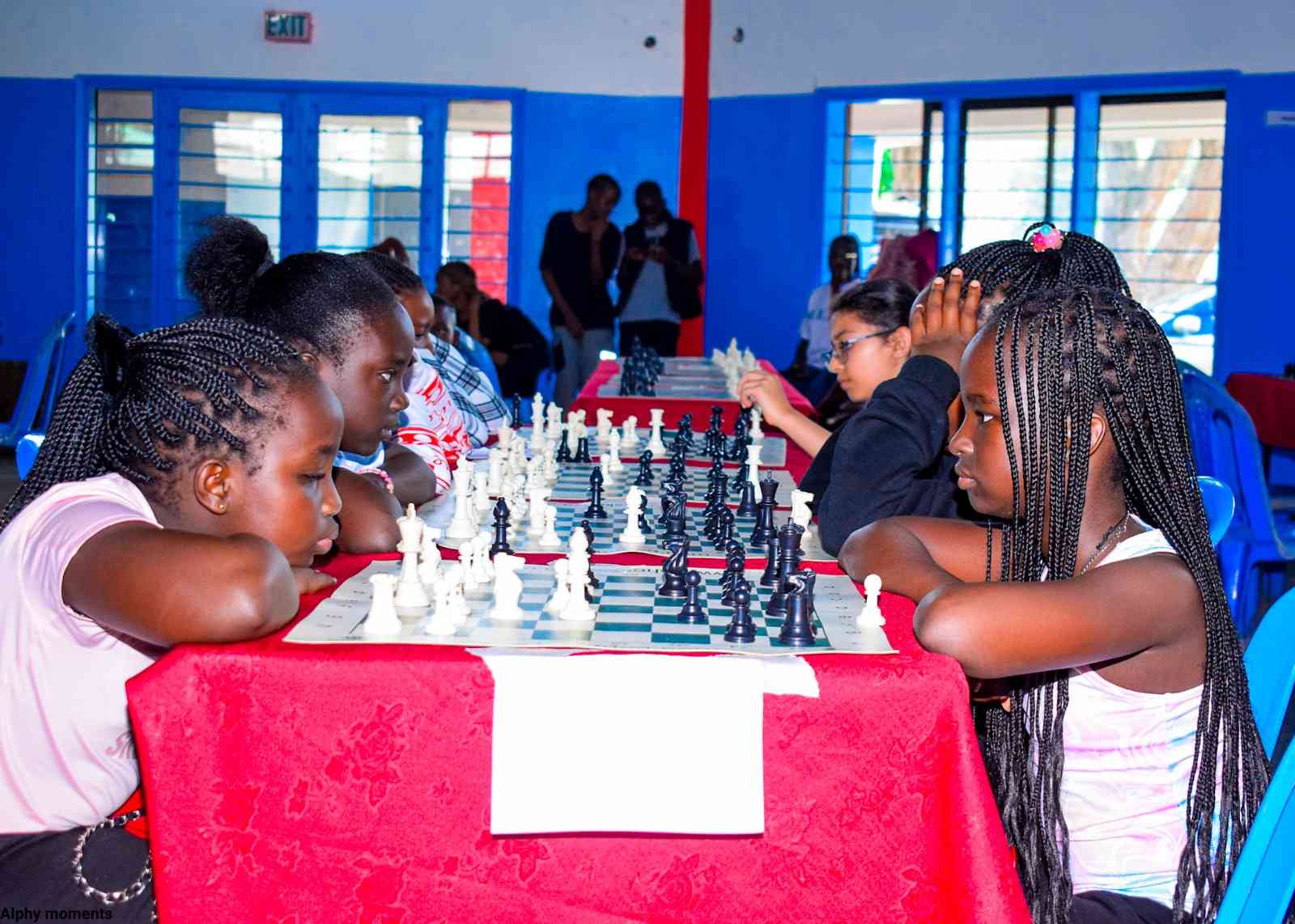 |
|
Members of Parliament during the debate |
BY WAWERU MUGO
NAIROBI, KENYA: How ridiculous can MPs get? One would expect lawmakers to be on the forefront of defending children, respect for women as well as strengthening the family for a happier society.
On July 12, 1979, MPs settled down to debate the Marriage Bill, a proposed legislation that sought to set rules to improve the rights of partners, protect children within the family and restrict conditions under which polygamy would be acceptable, among a raft of other issues.
When Attorney General Charles Njonjo tabled it in the Second Reading, some MPs made remarks that would have been hilarious had it not been for the weight of the matter being discussed. One castigated it for trying to outlaw wife inheritance, another said it was a foreign law because it made polygamy difficult while yet another said children under 14 years were ready for sex and marriage. The Bill set the minimum marriage age for girls at 16 and 18 years for boys.
One legislator said men should be allowed to beat up their wives to instill “manners”. Under the Bill, one could only marry another wife with the consent of the first. Vice President Mwai Kibaki, who decades later would find himself clarifying that he had only one wife, firmly criticised polygamy and said his views were informed by a “personal prejudice.”
In his opening statement, Njonjo said a commission earlier appointed by the president to examine marriage, discussed issues such as whether all children born into polygamous relationships had equal rights. It examined whether multiple wives could be recognised by law. An earlier version of the Bill, which had been amended, also made adultery a criminal offence.
“…Men have been prone to poaching and going out at night, leaving their wives and having other illicit unions,” he said. “If (the Bill) comes through, they’ll be recognised as wives, and the children will be children of the union between that man and the wives.”
Under existing laws at the time, children of other wives other than the first could not inherit property if their father died. Although a law to deal with succession had been passed earlier, Njonjo said if the marriage issue was not clearly stipulated in law, anyone would try to claim property.
The AG knew there was going to be trouble and acknowledged that a number of MPs were polygamous. Women were also a minority in the House.
The Bill also established the office of the Registrar General to register marriages. Similar offices would be spread across the country.
Inherit wives
As soon as Njonjo was through, the MP for Chepalungu, Kimutai arap Soi shot up to register his anger, saying it introduced a foreign concept.
“I think this Bill should have been entitled “abolition of polygamy in Kenya” instead of beating about the bush,” he said.
“We are not ready to abolish polygamy in Kenya…I firmly believe it is aiming at that because when you make a law which allows your wife to agree to your second marriage; no woman will agree to let her husband have a second wife. That is completely abolishing polygamy because after passing the Bill, there will be no more practicing of polygamy.”
He said there would be suits all over the country over the issue. Although he was not a polygamist, he said that polygamy should not have been legislated but left to die naturally.
Stay informed. Subscribe to our newsletter
According to the official Parliament record known as the Hansard, Soi said there were times when polygamy was justified, like when the first wife failed to bear children.
“At times, the first wife is very rude and such a husband should be allowed to marry a second wife. I do not believe that this legislation should be enacted because it is too fast for our country.”
He went on: “The AG said that when one dies, his wife is taken over by his brothers. That is the most important thing in African customs. When a man dies, his wife should be taken by his brother so that she does not run away and the children made to stay with foreigners and the clan will be no more.”
Register marriages
He had more to defend his stand: “Your brother will look after your children and they will belong to you even after you are dead, otherwise if you leave your wife to be married by other people from other families, then she will go with all the children. If this happens, then there will be chaos.”
Today, wife inheritance especially among the Luo has been blamed for spreading HIV and Aids. It has been castigated as a retrogressive cultural practice.
Section 52 of the Bill called for all subsisting marriages to be registered.
“That means that myself, the Attorney General and Hon Mbiyu Koinange will have to register,” said Soi.
Njonjo: “My marriage is registered.”
Arap Soi: “Then you are lucky because some of our marriages are not registered.”
He took issue with Section 73, which prohibited wife beating.
Women love beatings
“In this section no husband will be allowed to inflict corporal punishment to his wife, even a slap. How can you discipline your wife if you cannot inflict corporal punishment? You should not harm her by breaking her neck or her hand but you should give light corporal punishment in order to teach her manners.”
He continued: “That is very African, It is very normal and they need it. They always expect it and they would miss it.”
He found himself in trouble over the statement.
Mrs Grace Onyango, the member for Kisumu Town was annoyed: “It is known that some women are stronger than men. If it is the question of housing, many women pay for their houses while men take their money to the bars…When a woman slaps a man, who is always naughty, that is said to be bad manners. Why is this so?”
To Soi, polygamy was a reserve of the rich: “Poor people cannot marry even one wife. So it is only those who have a lot of money that will be able to marry more than one wife.”
Peter Oloo Aringo, the MP for Alego said the Bill only recognised a nuclear family, yet many Africans held the extended family very close to their hearts.
“As my friend has put it, the Bill is rather too fast and untimely because it ignores the extended family, which is also a reality in our social system,” said Aringo.
Nahashon Njuno, the MP for Kirinyaga East, said Kenya was not yet erady for such laws. The Bill should have been shelved and discussed at a “later age by our children, I think the time then would be appropriate than it is today.”
He was unhappy with a section of the bBll that called for formation of marriage tribunals to hear disputes and determine whether couples should divorce or not.
Njuno claimed the Bill would encourage adultery. It allowed a discontented wife to lodge complaints with the tribunals in private.
“I do not know whether this private hearing will be conducted in a house or in a small cubicle with certain facilities. What I cannot understand is; who are these members of the tribunal to judge my family? Who can trust men, beasts as they are?”
He also opposed the section seeking consent from the first wife to marry another one. “If I did so, my wife would definitely know that I want to marry a young girl and she will be jealous because she would know If I married this girl, I would never go back to her because I would almost disappear.”
But it was the Chief Kitonga who really caused an uproar for suggesting that it was fruitless to bar people from marrying family members. Section 22 of the Bill stated: “No person shall marry his grandparent, parent, child, grandchild, sister, brother, great-aunt, great-uncles, aunt, uncle, niece, nephew, great-niece or great-nephew.”
When he rose to make his contribution, he said: “Bw Naibu Spika, nafikiri hapo kuna matatizo kwa sababu sio makabila yote ya Kenya ambayo yataifuata sheria hiyo kwa sababu wengine kufanya hivyo ndicho kitu kizuri zaidi kwao. Wanapenda kufanya hivyo, na wamekuwa wakifanyika mara nyingi.”
Marrying relatives
(I think we have a problem because not all communities will obey this law. For some, that is what they like to do and they have done it many times)
Mr K Mulwa, the MP for Makueni, reminded Kitonga that there already existed a law against such relationships.
Perhaps even more ludicrous was Chief Kitonga’s suggestion that children as young as 13 of 14 years were mature enough for sex and marriage. This, he said, was particularly so for rural girls who had no access to education.
He said: “…Sheria hii ikipitishwa sijui itachukua muda murefu namna gani kwa sababu siku hizi utampata msichana wa miaka 14 amepata mimba. Hata watoto wa miaka 13 wanapata mimba. Si watoto wa shule tu peke yao. Afathdhali wale wa shule, kwa sababu wanaelewa na mambo kidogo. Watoto wanaoishi sehemu za mashambani na ambao hawakwendi shuleni, wanapofikisha umri wa miaka 14, wanakuwa mature kabisa… Kwa hivyo, she is automatically mature.”
(I don’t know how long it will take if this law is passed. These days, you’ll find a 14-year-old girl getting pregnant. Even 13-year olds are getting pregnant, it’s not just school children. The school girls are better because they understand a few things. By the time they are 14, those who live in rural areas and don’t attend school are already mature enough.”
Fellow MPs castigated him for using undesirable language when describing the children.
Asked by a member how many wives he had, he said he had one with 12 children.
“Sisi tunafanya kazi day and night.” (We work day and night).
However, he supported the Bill “with conditions.”
The Vice President and Minister for Finance, Mwai Kibaki, said polygamy was an outdated practice. He commended the Bill for protecting the rights of children.
“Members welcome this ridiculous idea that polygamous marriages are good things…I hope that very quickly we shall outgrow this monstrous habit,” he said. “However, this is a personal prejudice, and I need to press it. However, I am saying that for any society that wants to progress, the idea that polygamy is a thing to be protected is bad.”
The Bill was eventually rejected.
 The Standard Group Plc is a
multi-media organization with investments in media platforms spanning newspaper
print operations, television, radio broadcasting, digital and online services. The
Standard Group is recognized as a leading multi-media house in Kenya with a key
influence in matters of national and international interest.
The Standard Group Plc is a
multi-media organization with investments in media platforms spanning newspaper
print operations, television, radio broadcasting, digital and online services. The
Standard Group is recognized as a leading multi-media house in Kenya with a key
influence in matters of national and international interest.
 The Standard Group Plc is a
multi-media organization with investments in media platforms spanning newspaper
print operations, television, radio broadcasting, digital and online services. The
Standard Group is recognized as a leading multi-media house in Kenya with a key
influence in matters of national and international interest.
The Standard Group Plc is a
multi-media organization with investments in media platforms spanning newspaper
print operations, television, radio broadcasting, digital and online services. The
Standard Group is recognized as a leading multi-media house in Kenya with a key
influence in matters of national and international interest.









